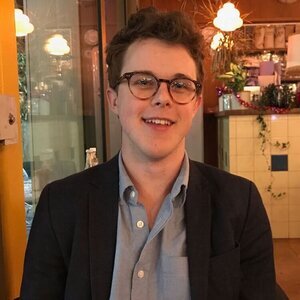Maths and Statistics Oxbridge Model Personal Statement
This is a model personal statement by a succesful Oxbridge Maths and Statistics applicant.
When first learning about algebra as a child I was fascinated with how the letter X was used to find seemingly unobtainable solutions, e.g. to simultaneous equations. Since then I have enthusiastically studied algebra and been intrigued by how trigonometry connects with differentiation and by how complex numbers can be used to solve equations, with Bombelli’s use of i in cubic equations, which initially seemed to defy Cardano’s formula. I first assumed the cubic formula could always be used, but on learning about Bombelli I realised that often it is not that simple.
I was enthralled to learn how 𝑃𝑖 fits into different areas of mathematics apart from circles, such as in infinite sequences as shown to me when reading Acheson’s 1089 + All That, and one of the most interesting maths links I have read about is between elliptic curves and modular forms and how they were used to solve Fermat’s Last Theorem. Through an essay competition entry titled “The General Solutions of a Cubic Equation” I discovered that to understand one area of maths completely you need to learn several areas together. I have learnt that simple maths techniques applied in ingenious ways, as by Arthur Benjamin in The Magic of Math, can be used to solve complex problems when applied with tenacity.
I am very interested in the use of algebra in statistics and amazed that e, which I first encountered in differentiation, is used in the Poisson distribution to calculate probabilities. I am intrigued by how stats underpins economics, with models calculating investment risk and profit. Reading Risk Savvy by Gerd Gigerenzer I learnt how natural frequencies are used to calculate risk and how probabilities can be presented in different ways such as relative versus absolute risk. When learning game theory I was amazed how there is always at least one Nash’s equilibrium in every finite game with two or more players, no matter what the game is, and how game theory always crops up in the real world.
In summer 2018 I worked at a Lloyd’s of London insurance underwriting managing agent, in the actuarial and risk departments, analysing data for use in stats models to calculate risks of further investments. What particularly impressed me was that by using team stats the company predicted the 2018 World Cup winners, as they did in 2014!
Attending a week-long Economics Debate Chamber summer school course taught me many key features that underpin economics and their real world application. Michael Lewis’s The Big Short and Boomerang showed how the economic world changes rapidly and that to succeed in such an environment requires detailed economic knowledge alongside maths and statistical ability to calculate the risks. By studying the 2008 subprime mortgage crisis I realized that as the distance between the borrower and bank increased people became more and more detached from the risks involved, resulting in an economic disaster.
In taking three Pre-Us and an A-level I have learned the importance of organisation by managing a heavy workload. By persevering through difficult maths problems, including AEA and STEP, I have found that if you keep trying you get there, and now see a tough question as an enjoyable challenge.
I am a keen fencer, Captain of the school fencing team and won school colours at the 2019 Public Schools’ Fencing Championships. I head the school chess society. Chess is a game I have found absorbing since the age of six, being fascinated at how chess board geometry can be used. I enjoy biology and won a British Biology Olympiad silver medal at age 16.
However my main love and dedication is maths and its application via stats to economics and the world in which we live. I enjoy algebra’s applications including its many stat uses which in turn are so important in economics. I believe that maths, stats and economics, and their interrelationship, are profoundly interesting, and hence I am greatly excited at the prospect of learning as much as I can at university.


